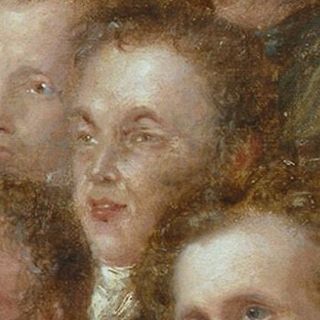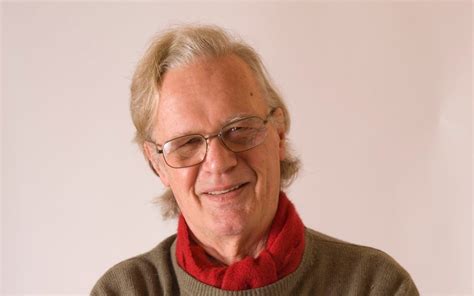A Quote by Walter Benjamin
He who asks fortune-tellers the future unwittingly forfeits an inner intimation of coming events that is a thousand times more exact than anything they may say. He is impelled by inertia, rather than curiosity, and nothing is more unlike the submissive apathy with which he hears his fate revealed than the alert dexterity with which the man of courage lays hands on the future.
Related Quotes
"When we contemplate the duration of the universe, we see it limited to the present moment, which is nothing more but the point which separates two infinities of time. The past and the future are as meaningless as if they did not exist. Is anyone more misguided than the man who barters an eternal future for a moment which passes quicker than the blink of an eye?."
Man is more than his environment. It is from the innate quality of the Spirit in him, his inner storehouse, that he draws those ideas, his intuitions, which unify his perceptions of the external world instantaneously with a value which is qualitative and not quantitative, and which he embodies in the works of his culture - those achievements which belong not only to one particular time but to all times, and mark the path of his upward progress.
The mind's eye can nowhere find anything more dazzling or more dark than in man; it can fix itself upon nothing which is more awful, more complex, more mysterious, or more infinite. There is one spectacle grander than the sea, that is the sky; there is one spectacle grander than the sky, that is the interior of the soul.
The person in peak-experiences feels himself, more than other times, to be the responsible, active, creating center of his activities and of his perceptions. He feels more like a prime-mover, more self-determined (rather than caused, determined, helpless, dependent, passive, weak, bossed). He feels himself to be his own boss, fully responsible, fully volitional, with more "free-will" than at other times, master of his fate, an agent.
The gratification of curiosity rather frees us from uneasiness than confers pleasure; we are more pained by ignorance than delighted by instruction. Curiosity is the thirst of the soul; it inflames and torments us, and makes us taste every thing with joy, however otherwise insipid, by which it may be quenched.
Any more questions?" I ask, poking him gently in the ribs. "Do you still love me any?" Eliot asks, putting his hand over mine. "A little." "A little?" he asks, pulling away from me. "A lot." "How much?" he asks. "More than chocolate chip cookies." "Mmm" he says, kissing my shoulder. "More than walking on the beach." Eliot kisses me on the neck. "More than . . ." I pause, turning to look at him. "More than?" he asks, kissing my lips. I turn toward him. "Anything.
Luck, if it mean nothing more than an event of which the cause is not apparent, is a term that may be employed without error; but if it means, as it generally does, an event which has no cause at all, a mere chance, it is a bad word, a heathen term; drop it from your vocabulary; trust nothing to luck, nor expect anything from it; avoid all practical use or dependence upon this or its kindred words, fate, chance, fortune.
If idioms are more to be born than to be selected, then the things of life and human nature that a man has grown up with--(not that one man's experience is better than another's, but that it is 'his.')--may give him something better in his substance and manner than an over-long period of superimposed idiomatic education which quite likely doesn't fit his constitution. My father used to say, 'If a poet knows more about a horse than he does about heaven, he might better stick to the horse, and some day the horse may carry him into heaven'
When future generations look back on the global-warming scare of the past 30 years, nothing will shock them more than the extent to which the official temperature records – on which the entire panic ultimately rested – were systematically “adjusted” to show the Earth as having warmed much more than the actual data justified.


































